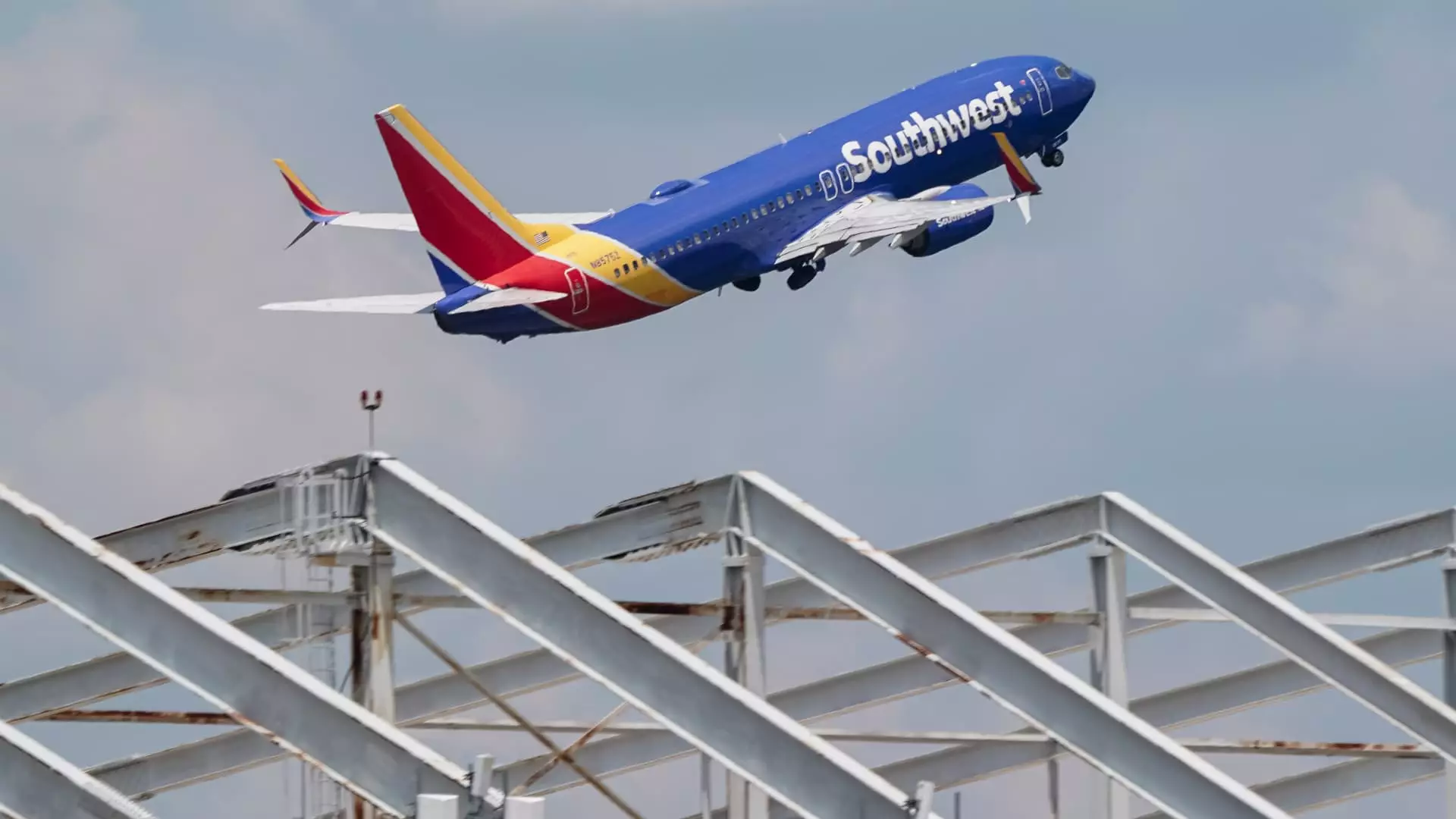In the third quarter, Southwest Airlines encountered a decline in profits compared to the previous year, yet triumphed over Wall Street forecasts. This underperformance can be attributed not only to external market pressures but also to Southwest’s strategic maneuvers to enhance its revenue stream while simultaneously addressing the growing influence of Elliott Investment Management, an activist investor. Despite a 65% drop in net income to $67 million—or $0.11 per share—the airline managed to report a noteworthy revenue increase of over 5%, totaling $6.87 billion. The earnings undershot analysts’ expectations, yet the adjusted earnings of $0.15 a share exceeded the consensus forecasts.
Elliott’s involvement prompted significant governance changes within Southwest. A recent agreement between the airline and the investment firm has averted a potential proxy fight. Under the terms of this deal, six candidates from Elliott will gain board positions, while CEO Bob Jordan will remain at the helm. These governance shifts are pivotal as they hint towards a more aggressive strategy to streamline operations and improve overall financial performance in response to shareholder pressures.
Looking ahead, Southwest anticipates a rise in unit revenue ranging from 3.5% to 5.5% in the fourth quarter, even amid a projected 4% decrease in capacity compared to last year. Despite these optimistic revenue projections, the airline expects costs—excluding fuel—could rise by as much as 13%, creating a complex financial landscape for the management team. Notably, the airline indicated healthy travel demand, with robust holiday bookings projected, demonstrating resilience in the leisure travel market.
In a move to bolster profitability, Southwest has unveiled a comprehensive three-year plan geared towards introducing $4 billion to earnings before interest and taxes by 2027. This initiative includes a $2.5 billion stock buyback strategy, which reflects a commitment to enhance shareholder value. Additionally, Southwest is set to implement significant operational changes, including the transition away from its traditional open seating policy towards a more segmented pricing model. Passengers will now have the option to pay for designated seats and extra legroom, marking a major shift in the airline’s approach to customer service since its establishment.
Overall, while Southwest Airlines grapples with a decline in profits and rising costs, the airline’s proactive measures—ranging from strategic governance arrangements to operational enhancements—position it favorably for navigating the turbulent airline industry landscape. As travel demand remains vibrant, the airline’s focus on profitability through innovation and operational efficiency will be crucial for long-term success in a competitive market. The forthcoming quarter will serve as a critical testing ground for these new strategies and their potential to foster recovery and growth.

